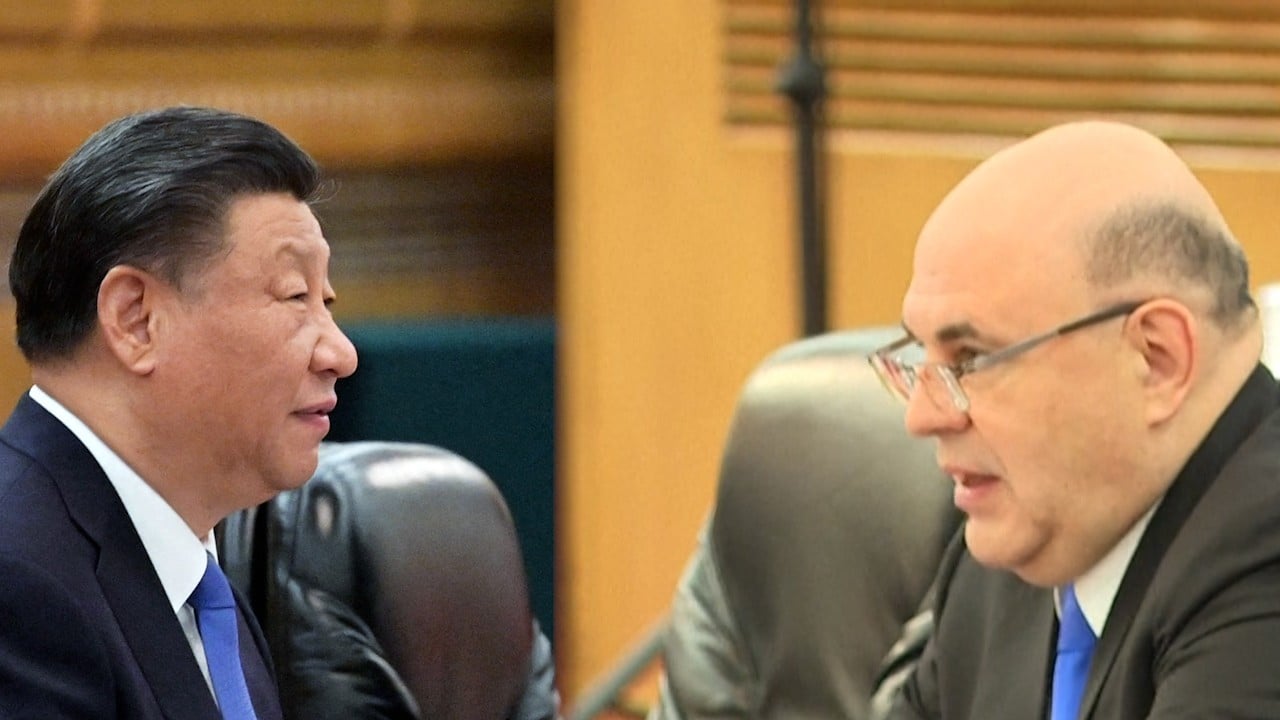Today, Chinese President Xi Jinping holds the upper hand with Russia, economically and diplomatically.
Xi has chosen to throw his political and economic weight behind Russia. He has sent clear messages of support since February 2022, when the Ukraine war began. Indeed, his first post-pandemic foreign visit in March this year was to Moscow, where he and Putin committed to deepening the alliance between the two countries.
But glad-handing and photo ops cannot hide the reality of a deeply unequal relationship.
Putin is in a very weak position. The Ukraine war, far from being a decisive, swift, low-cost knockout, is draining the country. Estimates suggest it has cost Russia between 47,000 and 200,000 casualties, depending on the data source. Russia is depleting its military stockpiles, even as oil and trade sanctions are shrinking Moscow’s economic options.
The Russian economy is an ageing operation of fossil fuels, metals and other commodities that has been hit hard by economic isolation from the West. Russia’s economy is a fraction of China’s at a mere US$2 trillion. With Russia and its businesses ring-fenced with sanctions by the United States and European Union, the economy is expected to barely grow this year. Russian exports to Europe are down by about 40 per cent compared to pre-war, in major markets like Germany and the Netherlands.
China’s economy, even when stressed, as now, remains the second largest in the world after the US, at US$18.1 trillion last year. It is massive, diverse, deep, innovative, globally interconnected, flexible and a direct competitor with the US. Russia’s economy mattered little globally before the war; now, with Europe weaning itself off Russian gas, it matters even less to the West.
The unequal alliance between Russia and China has Xi paying many of Russia’s bills, via commodity and fossil fuel imports worth an estimated US$88 billion in the wake of the war. This increasing trade flow is not a sign of Russian strength but of weakness.
Putin is Xi’s inferior and now is the time for China to exert influence. Russia is desperate for a muscular economic backer and Putin needs China as a buyer for its (heavily discounted) oil and gas; it needs Chinese goods and technology as Western markets remain closed; it wants, but has not yet secured, supplies of Chinese military armaments.
Xi may be backing Russia in its war against Ukraine, but he calls the shots in this relationship and is getting the better deal out of the alliance. He should use his influence with Putin to push him to the negotiating table with Ukraine. Not today, but certainly after Ukraine’s counteroffensive.



